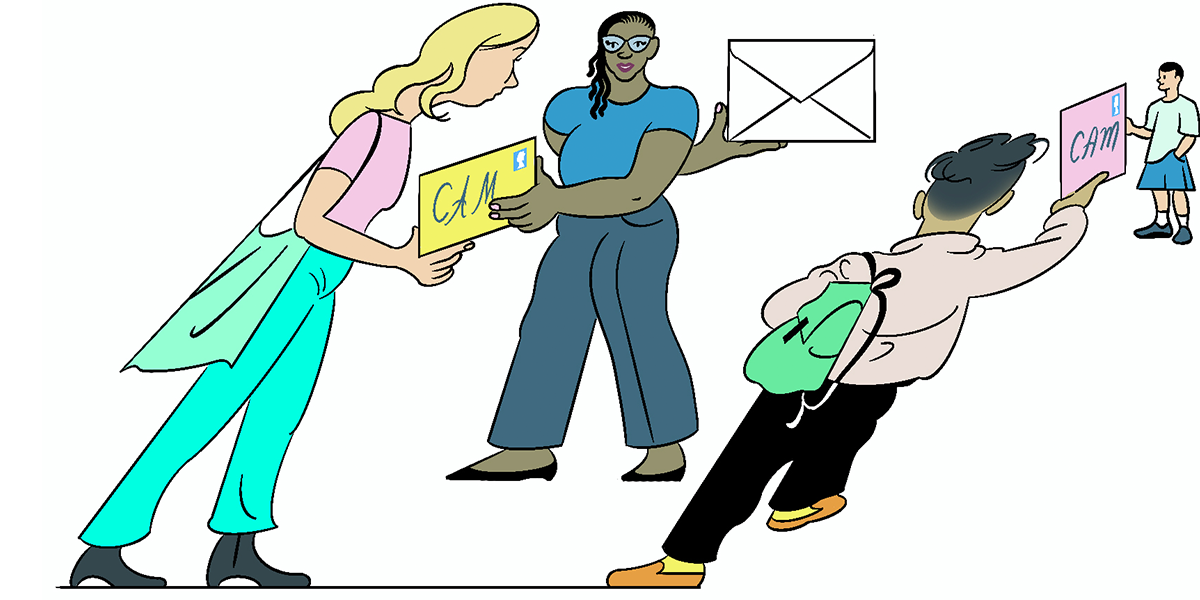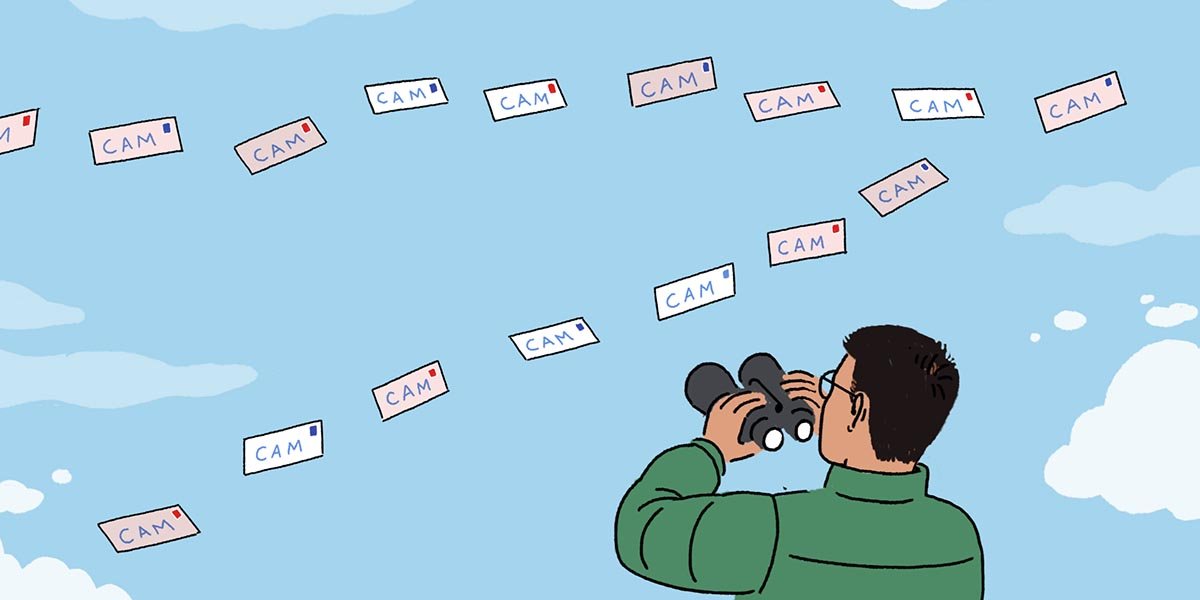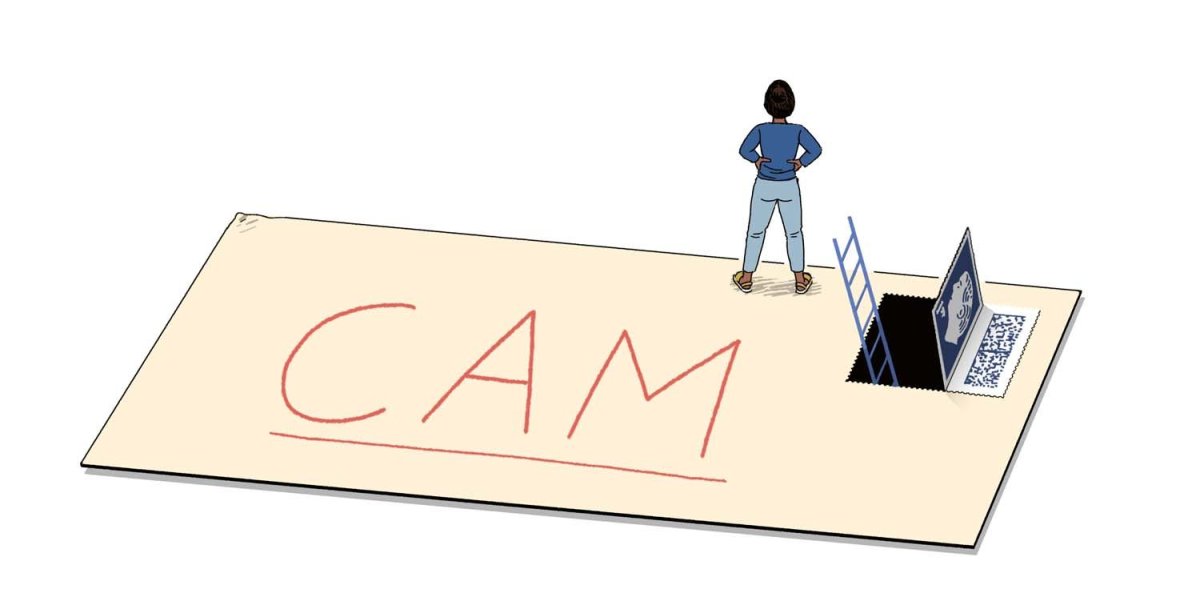Mira Katbamna
Inbox: CAM 100
Welcome to the Michaelmas edition of CAM – and in fact, the 100th edition of CAM. Brilliant minds, hot innovations, multiple editors – CAM has seen it all. We had to ask: what has she made of it all? We ask the doyenne of Cambridge to spill it.
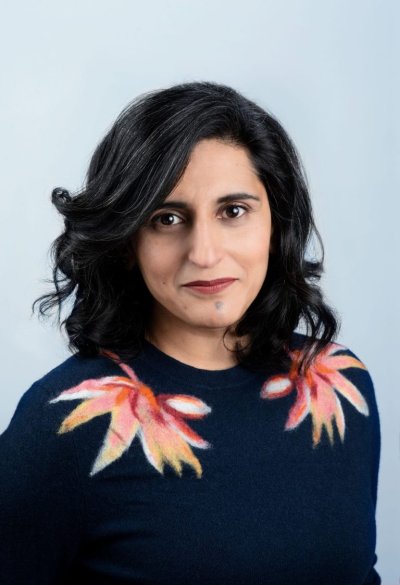
Welcome to the Michaelmas edition of CAM – and in fact, the 100th edition of CAM. Brilliant minds, hot innovations, multiple editors – CAM has seen it all. We had to ask: what has she made of it all? We ask the doyenne of Cambridge to spill it.
One thing we didn’t mention, of course, is CAM’s great age (too rude). However, we are sure she would have views on the demise of the Cambridge Pocket Diary. We find out why the digital calendar is a modern-day story of work, leisure… and power. Speaking of time management, how many of you learnt that particular art as part of a Cambridge committee? I know I did. We go behind the scenes to discover just what else you can learn in committee.
Elsewhere, we speak to the curators of the Fitzwilliam’s new blockbuster exhibition Black Atlantic, and, find out what Cambridge experts think about how we take the NHS forward.
On these topics – and on all things Cambridge-related – we look forward to your contribution to the debate, online, by post and email, or on social media.
Mira Katbamna (Caius 1995)
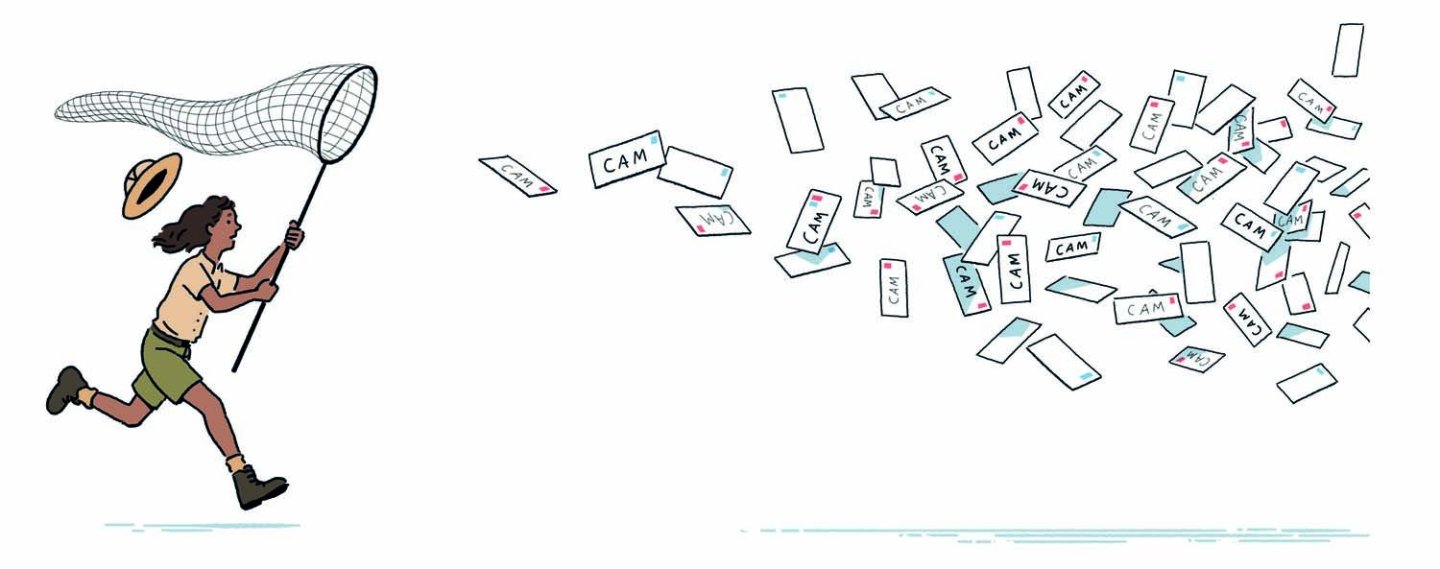
My room, your room
After giving lunch to two lifelong friends, I opened CAM and read the conversation between Okechukwu Nzelu and Aiseosa Eweka-Okera with pleasure. “They care about you as an individual,” says Nzelu of his teachers. “I think the relationships will stay with me.” That certainly has been my experience. I met both my fellow interviewee, Anna, and future Director of Studies, Gillian, at interview in 1966. Little did I imagine that I would get a place, or that 56 years later our lunchtime conversations about literature and life would continue seamlessly.
Sarah Ray (née Eccleshare) (Girton 1967)
Foundation Year
I was inspired by reading the piece about the newly-introduced Foundation Year Programme. As someone with a single mother, who left school at 16 with virtually no qualifications, I was lucky enough to find something similar at the wonderful Newbattle Abbey Adult College in Scotland. This set me up for a lifelong journey of learning and teaching, culminating in a postgraduate degree in History at Cambridge, taken recently while in retirement.
Patrick Russell (Wolfson 2020)
Ireland
As Head of the Northern Ireland Office ‘talks team’, I very much enjoyed your educational articles marking the 25th anniversary of the Agreement. Your contributors were right to point out that the Agreement needs to be seen in its full historical context, and was about far more than ‘doing a deal’ with the Republican Movement and bringing peace to Northern Ireland. Our objective was arguably more ambitious than that: to bring about a lasting accommodation between the two main political traditions on the island of Ireland, expressed in constitutional arrangements and political institutions that respect and accommodate the legitimate interests of all parties. Recent analysis and recollection has focused on the engagement with Sinn Fein and the Republican Movement, so your articles provided a helpful corrective.
David Hill (Caius 1973)
Nice to see the piece on Ireland. However, I was surprised none of the contributors explored the shortcomings of the Good Friday Agreement and how it has essentially ossified the ‘tribes’ with tactical voting away from the centre, directly contributing to the many deadlocks we see today.
Chris Brown (Trinity 2000)
Your set of essays on ‘The Irish Question’ in the Easter edition failed to recognise the key underlying feature. It has been Ireland’s misfortune that, for well over a thousand years, it has been seen as the back door to England. Now it is used by the EU as a tool to exert pressure on the UK post Brexit. A rational view would recognise that there will always be unregulated trade across the Irish border and that the potential damage to the EU is negligible. Ructions over the border are just a negotiating tactic.
Mike Keatinge (Caius 1959)
The great laughter debate
What fun it was to read about Dr Rebecca Anne Barr’s project on the history of humour in 18th century Britain (‘All in the best possible taste?’, CAM 99). But Cambridge has been probing what made our Georgian ancestors smile for some time, and it’s no laughing matter that the work of Vic Gatrell, my postgraduate supervisor, wasn’t mentioned.
Lawrence Goldman (Jesus 1976)
Editor’s note: No laughing matter indeed – not least because Vic was my supervisor too! You can read his thoughts on ‘the ridiculous to the sublime’ in CAM 96.
Learning styles
I agree that the concept of learning styles and that knowing each child’s preferred style should not influence pedagogy (CAM 99, This idea must die). With budgets in schools being so challenging, it is, as expressed in the article, paramount that initiatives are researched and proven, to ensure time and resources are employed effectively.
Judith James (Wolfson 1974)
I feel it important to correct the laughable assertion that there “is no central agreement on what goes into teacher training”, on behalf of frustrated academics in the field. The DfE’s (2019) Core Content Framework is 49 pages of exactly this – centralised statutory ITE curriculum. When one wants to debate bogus interventions in the teaching profession, it might be best to start with Ofsted, the DfE and the EEF’s own politicised attacks on the rich and dynamic evidence base that supports effective teaching and learning.
Will Grant (Queens’ 2011)
Congratulations
Congratulations on the occasion of CAM magazine’s 100th issue! This milestone reflects the exceptional dedication and hard work put forth by your team in providing quality content to the alumni community. Here’s to the next 100 issues!
Craig Nunn (Homerton 2007)
Write to us
We are always delighted to receive your emails, letters, tweets and facebook posts.
By email: cameditor@alumni.cam.ac.uk
By post: CAM, 1 Quayside, Bridge Street, Cambridge, CB5 8AB
Twitter: @Cambridge_Uni
Facebook: @Cambridge_Uni
Please mark your letter ‘For publication’. Letters may be edited for length.
 CAM
CAM